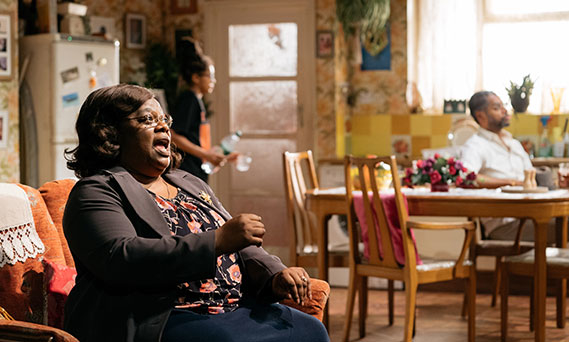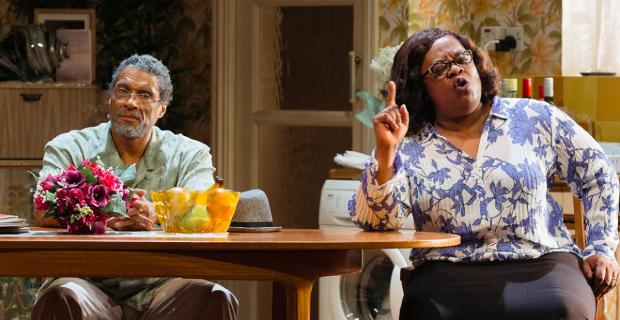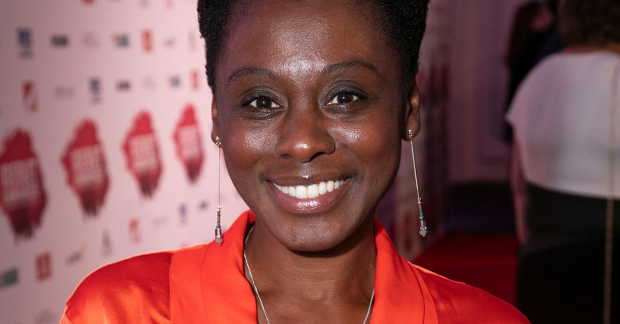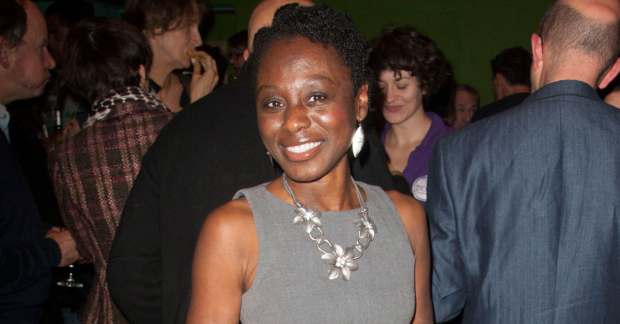Review: Nine Night (Trafalgar Studios)

© Helen Murray
This debut play by actress Natasha Gordon arrives at Trafalgar Studios flushed with the thrill of success. Its appearance at this venue means that Gordon becomes the first black British woman living playwright to have a play on in the West End – a barrier that has stood for far too long. And, after playing to packed houses at the National Theatre, the play has also won Gordon the Evening Standard's most promising playwright prize, one that writers such as Jez Butterworth, Martin McDonagh and Roy Williams have snagged before her.
Like their work, Nine Night announces the arrival of an original and compelling voice. It's a really accomplished play. Traditional in form, it uses the nine days of mourning that follow the death of the family matriarch Gloria to tease out the tensions and the grief of a British Jamaican family, devastated by her loss.
There are all kinds of divisions on display here: the balance between tradition and modernity, between Jamaican culture and its adapted British version, between generations and siblings. What makes the play so special – and I have noticed this both times I have seen it, surrounded not by first night audiences, but by the seat-buying public – is the way it touches its audience. I have rarely been in a theatre where people are so invested in the action happening on stage. There are gasps when characters do things that hurt others; sounds of shock, recognition, warmth and rage.
The play speaks loudly to black Britons who share its concerns. But because it is about families, about the disputes that break out when people are sad or hurt, it speaks to everyone. Here characters argue about food preparation, who makes the better (goat) curry, the way people are dressed, the right time to sell the family home, and who loves a parent more. They are all recognisable rows.
What's more, Nine Night, is both deeply moving and incredibly funny. Sometimes at the same moment. Roy Alexander Weise's excellent direction keeps both tendencies in perfect, understanding balance as the action sweeps across Rajha Shakiry's perfectly cluttered set, with its plastic covered dining chairs and antimacassars carefully placed on the battered sofa.
The play has been tightened and tidied since it first appeared, and now runs straight through at just under two hours, but what hasn't changed is the extraordinary believability of the performances from an exceptional cast.
From the moment she appears, Cecilia Noble's Aunt Maggie commands the space. Her comic timing is a wonder to behold, as she sets about imposing her presence on the family. "Breast milk at nine months?" she tuts at Rebekah Murrell's appealing Anita, when asking about her baby's eating habits. "Poor thing must be longing for a nice piece of chicken."
The line brings the house down – something Noble manages to do throughout. Even more impressively she carries the play's transition into moments of spiritualism and traditional belief without ever losing her hold; she also suggests the doubts that afflict her about the state of her marriage to Vince (Karl Collins, quietly wonderful) whose love for Gloria is never stated but always there.
Gordon has stepped in to play Lorraine, the good daughter, adding an extra shot of desperate emotion to her desire to have her dead mother's approval; Oliver Alvin-Wilson as her brother Robert, grappling with his own lack of success, and Hattie Ladbury as his white wife also bring finely-etched detail to their playing. Like Aunt Maggie, Michelle Greenidge's Trudy is both fiercely funny but distraught, the lost daughter whose attempt to find her own resolution of her feelings leads to the play's blistering conclusion. It's a fantastic piece.
















